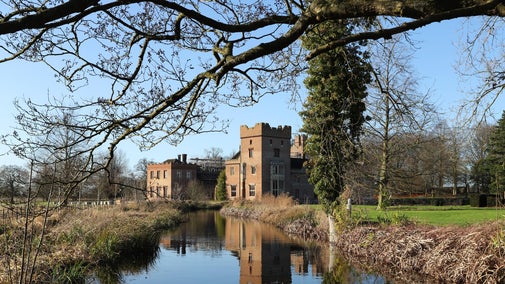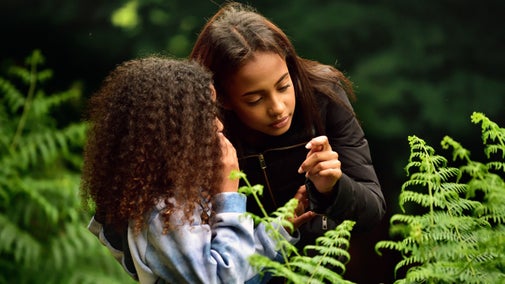
Donate
Everyone needs nature, now more than ever. Donate today and you could help people and nature to thrive at the places we care for.

A herd of Belted Galloway cattle were introduced to May Hill over 10 years ago. By grazing the land here, they are helping support the biodiversity of the hill.
Bluebell, Burdock and Bramble, Vetch and stately Widecombe Dale are five grand old ladies of the Belted Galloway breed. They have retired to the gentle slopes of May Hill and are enjoying their twilight years in peace and harmony.
Not only are they soaking up the panoramic view out over the Black Mountains to the west and the River Severn to the east, but they have the constant attention of a wonderful band of volunteer ‘cow checkers’. Every day these dedicated volunteers to check the herd to ensure they are okay and have enough food and water.
Unlike the sheep that used to graze here, Belties crop the grass less hard and so encourage more delicate plants and herbs to thrive, which in turn helps the wildlife.

A few years ago, you could only see bluebells in the field above the water tank. They've now spread across many other areas. If you're out for a spring walk, they're a real treat.
The well-established wild daffodils on top of the hill are also spreading. Yellow rattle flowers that were a rare sight a few years ago are now common. Heath bedstraw is now so well established it can appear as though there's been a shower of hail.
In 2007 the team of volunteers recorded 31 clumps of heather. In 2017 they mapped 109 clumps, with many merging to form larger mats. As the cows do their thing and the grassland improves, orchids are also slowly starting to appear.

Everyone needs nature, now more than ever. Donate today and you could help people and nature to thrive at the places we care for.
Discover how the grazing of Belted Galloway cattle is essential to the conservation of the grassland at Crickley Hill, and how they help wildlife to flourish.

We believe that nature, beauty and history are for everyone. That’s why we’re supporting wildlife, protecting historic sites and more. Find out about our work.

Read about our strategy, which focuses on restoring nature, ending unequal access and inspiring more people.
